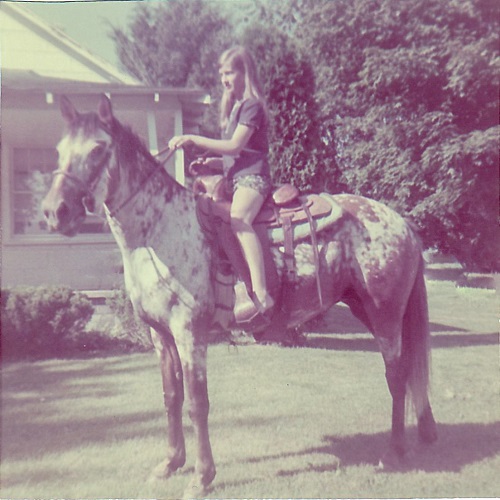Horse Around
 Our family owned a couple of horses for a brief time. We did not race them, show them, or make money from them. We simply enjoyed them. Dad bought horses for us to horse around.
Our family owned a couple of horses for a brief time. We did not race them, show them, or make money from them. We simply enjoyed them. Dad bought horses for us to horse around.
To horse around means to play or waste time.
The activity has no purpose. We often horse around while we avoid work we need to do. Goofing off feels like more fun than work.
Sometimes we horse around in a rough way.
We get rowdy or aggravate others. Occasionally we hurt them. Sometimes we mean to cause their pain. Other times, our rough play causes accidents.
We can all use a little horseplay, if we don’t get too rough.
It allows us to rest our minds and have a fun time. However, when we get too rowdy, we need to hold our horses.
Enjoy life but allow others the same privilege.
Let’s keep our priorities in order.
Responsibilities come first. Then time to relax. We don’t want to put the cart before the horse.
God gives us a few years on earth. Whether working or horsing around, let’s make the most of the time we have to serve God and help one another.
“Trust in the Lord and do good; dwell in the land and enjoy safe pasture” (Psalm 37:3 NIV).
Thanks to Becky Nash Rowe for the suggestion.
Do you have an expression you want explained or a thought about this one? If so, please comment below.
Subscribe to receive my weekly posts by email and receive a free copy of “Words of Hope for Days that Hurt.”
If you enjoyed this post, please share it with your friends.
 Our family had horses when I was a teenager. I loved to ride, but my sister preferred to keep both feet on the ground. She did not trust horses, especially when they chomped at the bit.
Our family had horses when I was a teenager. I loved to ride, but my sister preferred to keep both feet on the ground. She did not trust horses, especially when they chomped at the bit. When we put our hand to the plow, we are ready to work.
When we put our hand to the plow, we are ready to work.